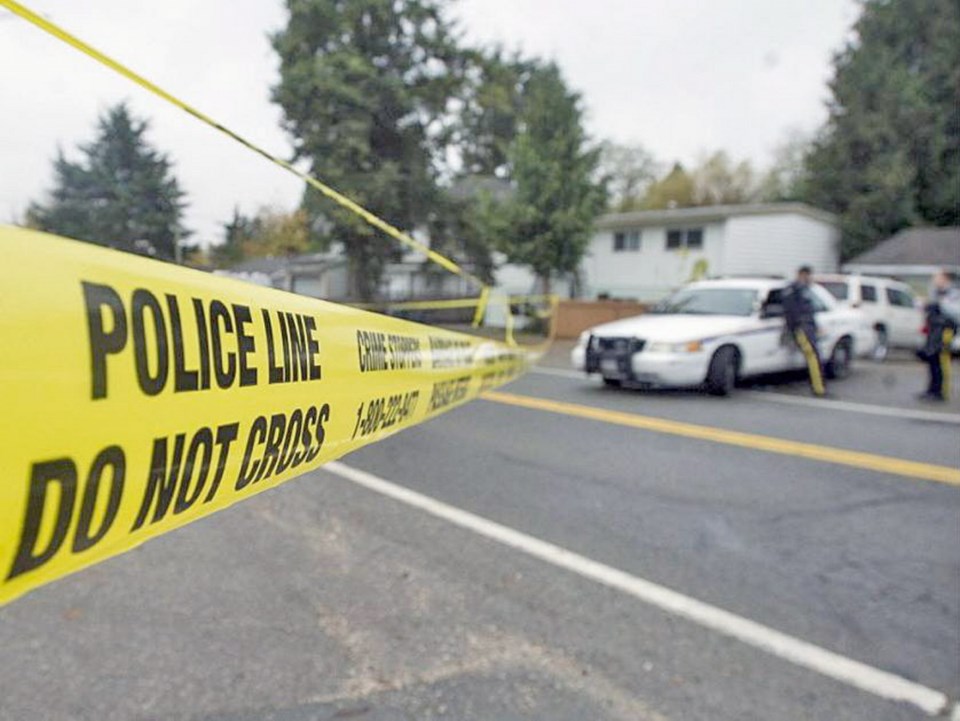The departing deputy police complaint commissioner is advocating for an independent civilian body to investigate police misconduct and criminal behaviour, which would put an end to the current practice of police investigating themselves.
“I think it’s natural that former police officers will be biased in favour of police, because it’s hard not to be,” said Rollie Woods, himself a former police officer who last week retired from an 11-year career with B.C.’s civilian-run police watchdog.
Even when officers are able to set aside their personal biases, Woods said, there’s still the public perception of bias that can fuel mistrust in police.
Currently, the Office of the Police Complaint Commissioner oversees complaints of police misconduct, which are typically investigated by the professional standards section of the officer’s own department.
Guided by the Police Act, the office is responsible for administration of discipline against police officers. It has the power to order that the investigation be handled by an external police department and can overrule investigative findings and call public hearings.
But the province’s police complaint process could be overhauled, as an all-party special committee considers reforms to the current system.
“I think it’s important for this office to have the ability to investigate misconduct and also potential criminal conduct,” said Woods, who noted that some departments are reluctant to launch investigations into officer wrongdoing. “There are many cases where we’ll ask the [involved police department]: ‘Will you investigate this?’ and they don’t want to do it. There’s lots of resistance.”
Former police complaint commissioner Stan Lowe, who retired in February and was replaced by Clayton Pecknold, has also backed an independent civilian office to probe use of force and serious misconduct complaints.
In his landmark report on the police complaint process in 2007, former justice Josiah Wood recommended a more robust model of oversight, where the OPCC would have electronic access to complaint files, allowing the office to review materials in real time as an investigation unfolds.
“I know [Josiah Wood] would be disappointed if he was still alive,” Woods said. “The Police Act has been in place for nine years and there’s still no contemporaneous oversight.”
Woods was hired by the police watchdog in 2008, after a 22-year career with the Vancouver Police Department. His final three years as a police officer were spent in the department’s professional standards section, where he investigated allegations of officer misconduct. That, and his previous experience representing officers through the police union, gave Woods a deep understanding of the Police Act that he says primed him for his next role with the OPCC.
Woods was promoted to deputy commissioner in 2011 and had a hand in training the office’s analysts, a mix of former police officers and civilians with diverse backgrounds in areas such as law and criminology. His own 35-year policing career allowed him to “teach [analysts] what the police do, why the police do it, the lawful authority for police to do what they do. You have to train these people to look at the evidence and set your own personal bias aside,” he said.
The B.C. Civil Liberties Association has also called for the OPCC to be given more teeth to investigate police misconduct, similar to the role played by the Independent Investigations Office, which probes police-involved deaths or serious injuries.
“When we talk to senior leaders in policing, many of them agree that it’s time for there to be an independent body much like the IIO [Independent Investigations Office of B.C., a civilian-led oversight agency that is called in when police are involved in a death or serious injury],” Woods said. “Now that they’ve experienced the IIO investigating serious harm and death cases, I think they’ve become more comfortable with that independent civilian body conducting the investigations.”
However, the IIO has been criticized for the quality of its investigations, which prompted the B.C. government this spring to amend the Police Act to allow the agency to hire former B.C. police officers.
Tom Stamatakis, president of the Canadian Police Association, said the OPCC already has broad powers to direct the outcome of misconduct investigations.
“The reality is, even though the police do the investigation, they have no control over the investigative outcome or any discipline being contemplated,” he said.
Instead of the province spending more money on police oversight, Stamatakis said it should invest in better police training, which could reduce the number of police-misconduct incidents.
“With respect to public confidence in policing, generally speaking, the majority of British Columbians are happy with policing in this province,” he said. “When you look at the number of contacts police have in this province with the public, we really don’t have a ton of complaints.”
The new deputy police complaints commissioner is Andrea Spindler, who has a master’s degree in criminology and has served with the OPCC for about six years, first as an analyst, then as a director. She also spent a year and a half working with the IIO as an investigator. Spindler was described by the agency’s former civilian director, Richard Rosenthal, as the best investigator under his watch, Woods said.
Woods, 65, who has three adult children with his wife of 40 years, said he thought it was the right time to retire to make room for the next generation of leaders in police oversight.
But he hopes to see the agency evolve to ensure the public has faith in police-misconduct investigations.
“The people of British Columbia have to trust their police,” Woods said. “The best way to enhance that trust is to make sure that when the police are held to account, there’s an independent civilian body that is looking at complaints and other information that alleges misconduct and making sure that the outcome is the right one.”



